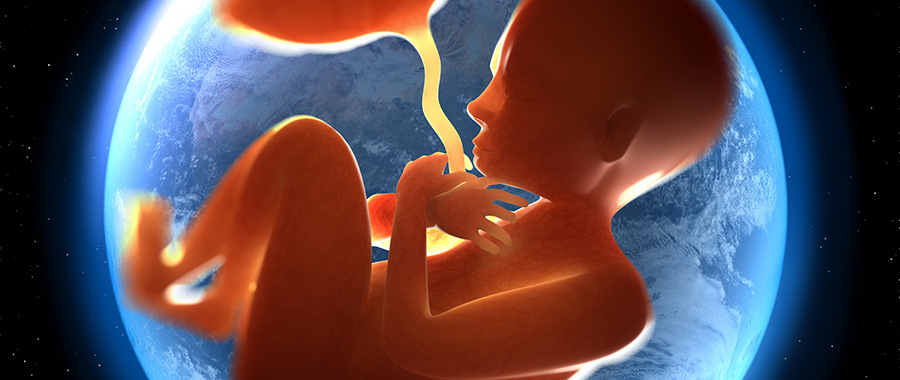The Bahá’í teachings encompass a profound array of principles aimed at driving humanity towards a common purpose. Among these teachings, the metaphor of “Preparing for Our Birth into the Next World” is particularly compelling, signifying a transition that is both spiritual and transcendent. This metaphor intertwines the concepts of death and rebirth, presenting the notion that life does not merely conclude but rather facilitates an evolution into a higher state of existence.
At its heart, this metaphor challenges the conventional understanding of life and death. In Bahá’í theology, death is not an end, but a passage. It is a transformative experience, akin to the metamorphosis of a caterpillar into a butterfly. Just as the caterpillar relinquishes its form to embrace the newfound capabilities of the butterfly, so too must individuals relinquish their earthly attachments, preparing for an afterlife brimming with potential and growth.
The very essence of preparation for this transition hinges upon spiritual development. The Bahá’í teachings encourage adherents to cultivate virtues such as love, compassion, and justice during their earthly sojourn. Each act of kindness and each moment of self-reflection serves as a building block for the soul, preparing it for its inevitable journey into the infinite realms beyond the physical world. Acts of service and sacrifice are not merely honorable pursuits; they are integral to the holistic preparation of the self for its eventual birth into the next world.
The Bahá’í perspective posits that this preparation is not limited to individual experience, but extends to the collective advancement of humanity. In this sense, the concept of birth into the next world becomes a communal endeavor. The principles of unity and collaboration are woven into the very fabric of Bahá’í teachings. As individuals strengthen their spiritual foundations, they simultaneously contribute to the overarching tapestry of human society, fostering an environment ripe for transcendent experiences.
Through the lens of this metaphor, one can appreciate the unique appeal of the Bahá’í faith. It emphasizes not merely survival after death but flourishing in the afterlife through intentional living. This imbues existence with profound significance; life becomes a prelude to an elevated state of being rather than an involuntary condition leading towards inevitable demise. The Bahá’í writings illuminate the path one must traverse, laden with moral certitude yet sprinkled with the freedom of personal choice.
The persistence of materialistic pursuits often obscures the more salient truths of existence. The Bahá’í teachings urge followers to transcend mundane distractions in preparation for the spiritual realities awaiting them. Embracing detachment from ephemeral pleasures allows individuals to prioritise their spiritual maturity, fostering resilience in the face of life’s vicissitudes. This resilience is essential—as the path to the next world is often filled with trials and tribulations, testing one’s commitment to personal and spiritual development.
A crucial aspect of this spiritual preparation is the cultivation of knowledge. The Bahá’í teachings illuminate the importance of education—not just in a formal sense, but as a holistic, lifelong journey of discovery. Knowledge becomes a tool not merely for worldly success but as a means of understanding divine knowledge and engaging with the world in a manner aligned with spiritual truth. This commitment to lifelong learning uniquely positions Bahá’ís to contribute thoughtfully and effectively to societal advancement, reinforcing their spiritual readiness.
Additionally, the metaphor of preparing for birth into the next world carries with it an inherent invitation for reflection. It implores individuals to ponder their legacies and the impacts of their actions. Each thought, word, and deed reverberates through the tapestry of existence, leaving an indelible mark. In recognizing the interconnectedness of all souls, Bahá’ís are encouraged to consider their contributions to the collective whole, both in this life and the next.
Moreover, the concept of rebirth is echoed in the cycles of nature. Observing the seasons serves as a poignant reminder of the temporary nature of physical existence. The cyclical rhythm—of decay, rest, and renewal—mirrors the spiritual journey each soul traverses. Just as winter invariably gives way to spring, so too does death lead into the splendor of the next world, where spiritual fruits may be reaped. This cyclical perspective reframes the notion of loss, transforming it into a hopeful anticipation for regrowth and rebirth.
The Bahá’í teachings are imbued with the promise of enlightenment and the potential for ascension. The act of preparing for birth into the next world is not merely preparatory; it is transformative, urging individuals to embody the very virtues that define the soul’s journey. The teachings invite followers to treat each day as an opportunity for growth, striving to create a balance between earthly existence and spiritual awareness.
In conclusion, the metaphor of preparing for our birth into the next world encapsulates the essence of Bahá’í teachings. It is an urgent call to arms for spiritual awakening, an invitation to embrace communal responsibility, and a reminder of the impermanence of material life. Through conscientious living, self-reflection, and the pursuit of virtue, individuals can prepare themselves for a transition that promises not an end, but a gloriously transformative beginning. Such teachings resonate with a profound sense of purpose, illuminating a path that transcends the temporal, guiding souls towards their ultimate destiny in the next world.
